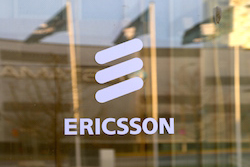One, common network platform shared across multiple industries is required in order for the Internet of Things market to fully take root while conserving limited spectrum resources, Ericsson’s CTO has claimed.
Speaking at the annual TM Forum Live event in France, Ulf Ewaldsson said such a move is necessary if businesses hope to capture the lucrative insights created by tying sensors and things together.
As such, he said operators needed to find ways to monitor and control cross-industry processes in the IoT through a common platform.
However, the CTO stressed that such a solution would require “very, very clever” architecture. He said: “Intelligence has to be built into networks in the future. It’s not [just] about the technology behind it – it’s operators.”
In particular, Ewaldsson said interconnection is where operators could play a key role by using the same common infrastructure for tasks including process control, cell automation and factory robotics.
“They must be able to collaborate and find ways of using similar infrastructure and one network,” he explained.
“One network is very important. The frequency resources are limited and we can’t just keep building network after network.”
Juanjo Hierro, CTO of Telefónica I+D’s IoT Industry Unit, built on this theme by turning the focus toward the role of application developers. Hierro claimed that cooperation and openness between developers and device providers was instrumental to capturing the contextual data needed to unlock new digital services.
Hierro said: “When we talk about APIs for the IoT, our vision is that developers don’t care so much about things, they care about context. If we want to really boost innovation, we need to bring a standard, simple-to-use API for context management.
“Developers want to get rid of complexity of managing IoT connectivity. By creating a bridge of partnerships, we will better be able to capture the opportunities [that IoT brings].
“Who’s going to be able to capture the opportunity that is coming? We don’t know yet, but what we can state for sure is that whoever does is going to bring the necessary APIs to the industry.”



